Manufacturing Consent is a concept derived from media criticism and political economy, originally proposed by Edward Herman and Noam Chomsky in their book of the same name, Making Consent. The concept is primarily used to describe how the media, through news coverage and public discussion, shape public opinion and perception to serve specific interest groups in the political and economic spheres without being visible.
The central idea is that while the media is widely seen as a neutral and objective source of information, in reality, due to money, political influence and market forces, the media often indirectly supports and disseminates views and agendas that benefit ruling elites and economic powers. This phenomenon is reflected in many forms of media, including television, newspapers, movies and online media.
The process of producing consent includes selective reporting (highlighting certain events while ignoring or devaluing others), framing (presenting information in a particular way to guide opinion formation), and agenda-setting (determining topics and priorities for public discussion).
This concept has important implications for understanding contemporary media ecology, political propaganda, and the way public ideologies are formed

The understanding of Making Consent in this book
The book can present the author’s five layers of (interwoven) filters that limit the spread of information to the masses.
1.┬áThe size, concentrated ownership, owner’s wealth, and profit orientation of the dominant mass-media firms.
The cost to news organizations is often large, because the only companies that survive in the market are those with deep pockets. If there is a news company that represents the interests of a certain minority group, they often cannot break even, and the news that concerns the interests of such people is often deemed not worth reporting by the big companies.
2. Advertising as the primary income source of the mass media.
Advertising accounts for the majority of media revenue, and in many cases now the media is operating at a loss (if you know a little economics, then the P<MC of the media, the price is less than the marginal cost), sustained by advertising fees alone. Then advertising is of extra importance to the media, and things that have an adverse effect on advertisers are naturally not reported —- To put it crudely, advertisers are the daddy.
3.┬áThe reliance of the media on information provided by government, business, and “experts” funded and approved by these primary sources and agents of power.
When it comes to sources of information (especially those that are not disposable), the media is of course deferential —- “Want continued access to our information? Then you must listen to me.” Such as government agencies (which are often regarded as trustworthy and official), and the “experts” they (including corporations) fund, often from universities and colleges, who are conscientious and speak for money.
4.┬á“flak” as a means of disciplining the media.

5.┬á“anticommunism” as a national religion and control mechanism.
Take, for example, the mainstream media’s attitude toward Japan’s discharge of nuclear wastewater
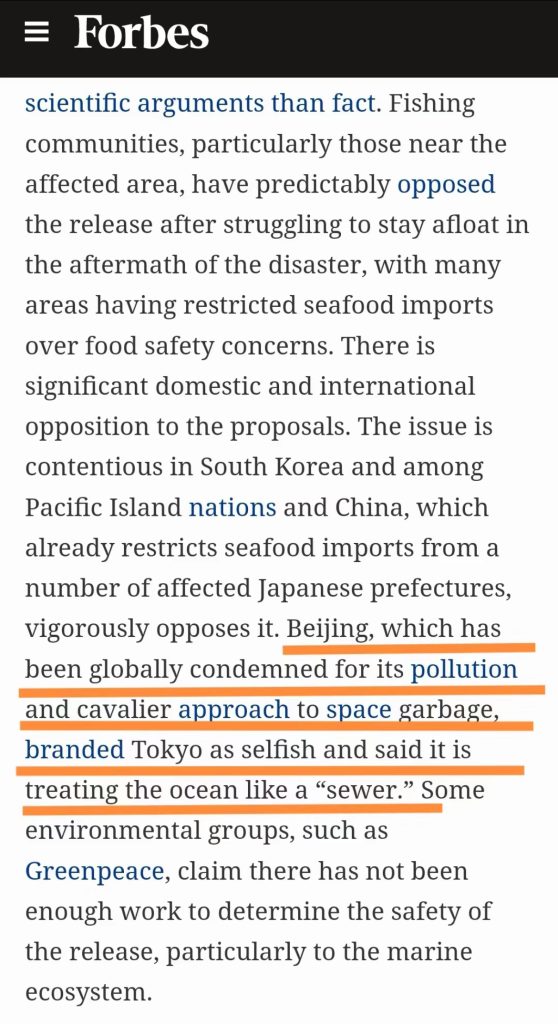
Forbes News
Forbes News simply states the story without presenting a lot of evidence. The judge is more. The attitude to Beijing mentioned in this article is only flaunts and descriptions, and labels, indicating that China does not support Japan’s decision, but no corresponding evidence is given. Many media directly borrowed the remarks of Chinese Foreign Ministry spokesperson Wang Wenbin at a regular press conference as evidence. In fact, this is not evidence to support it, because there is no research evidence, and it is a personal color of the media.
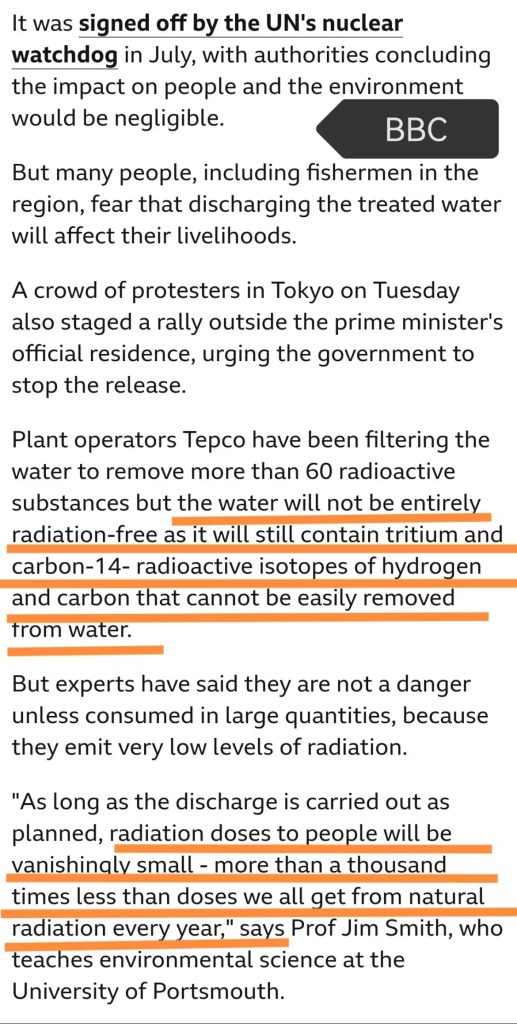
BBC
The BBC’s position in this article is relatively neutral and more critical. Take for example the opposition of the Japanese people, especially the fishermen, to this matter. Some academic literature and expert arguments support that a lot of radiation can be purified by the ocean, but there are still some elements (such as tritium) that are difficult to remove. But this amount is about the same as the natural radiation of these elements, proving that there is little harm. Through the way of both sides of the argument to let the reader sound reasonable, guide the reader to have the idea of “Oh, it is not very dangerous”.
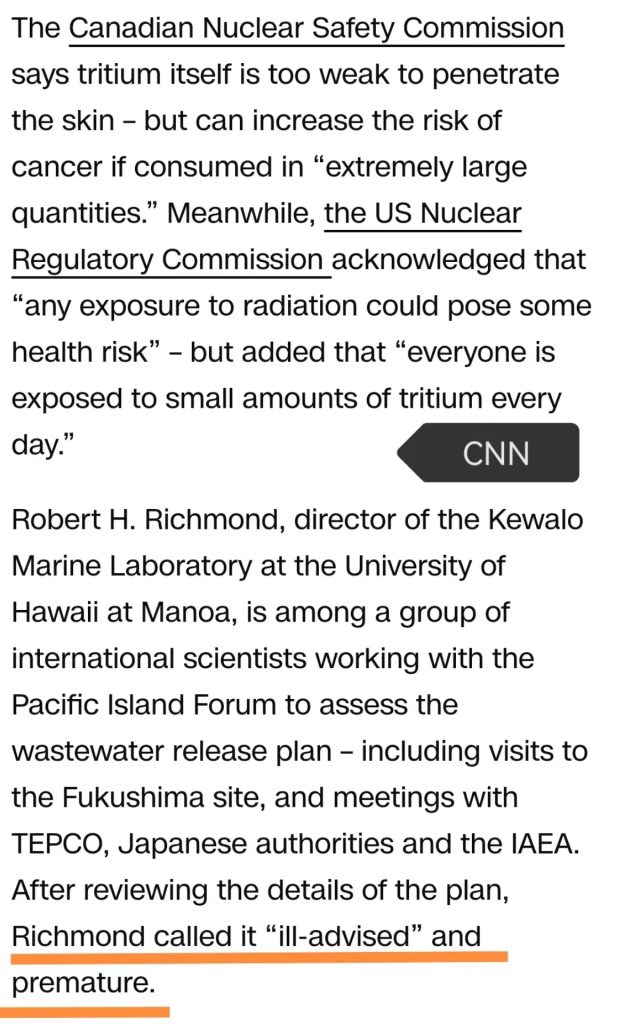
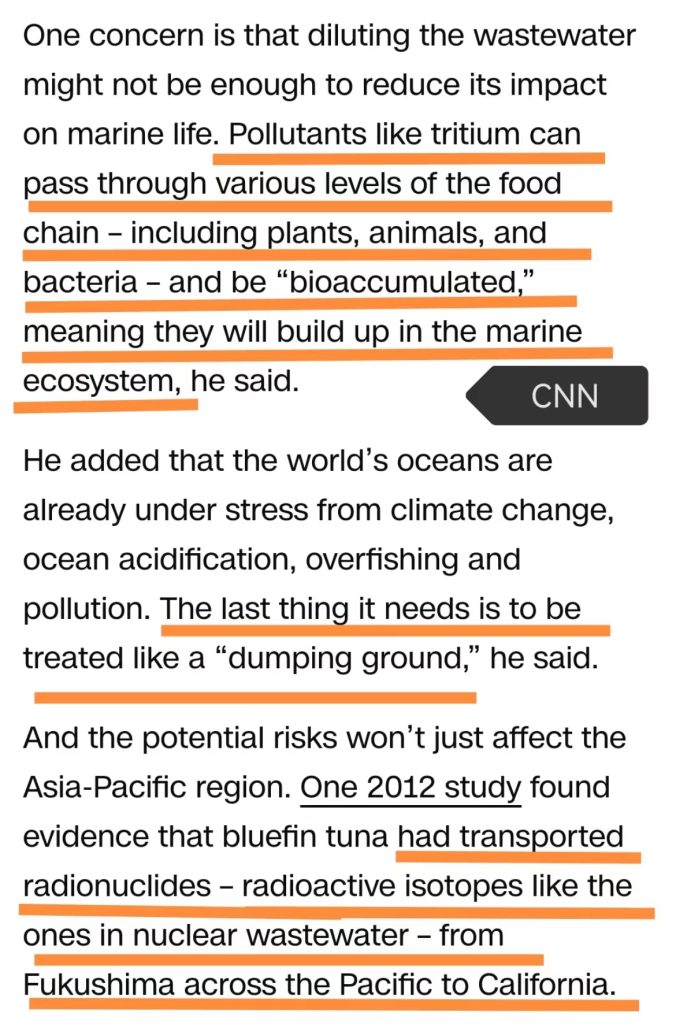
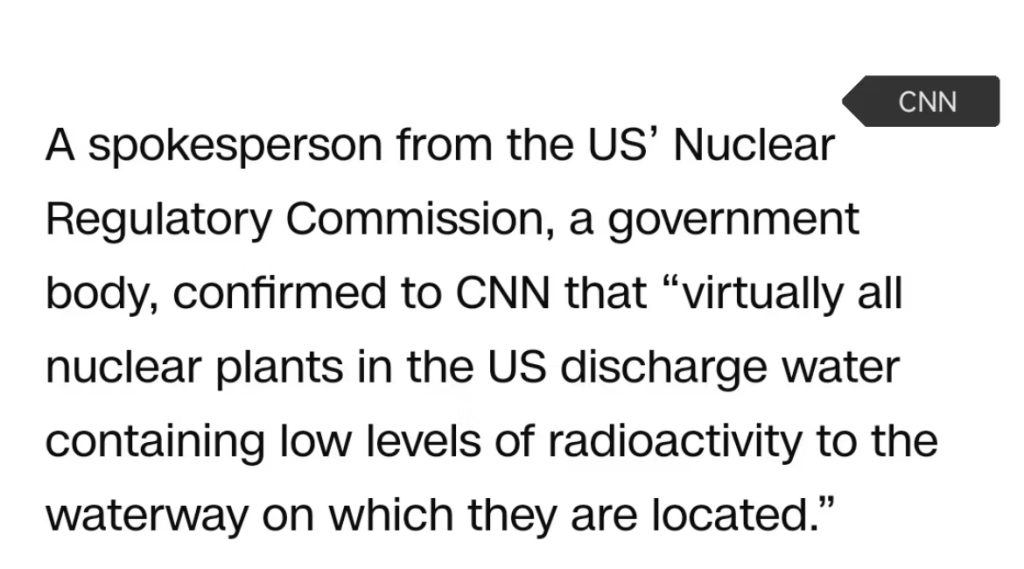
This CNN article not only has a large amount of evidence to support, but even considers the many influencing factors behind the behavior, such as the impact of the Marine food chain, the livelihood of fishermen, the survival of Marine organisms. They found evidence from representatives of international scientists who reviewed Fukushima’s contaminated water. It was not the opinion of one expert, but of three experts of different nationalities, all of whom expressed their opinions openly and objectively.

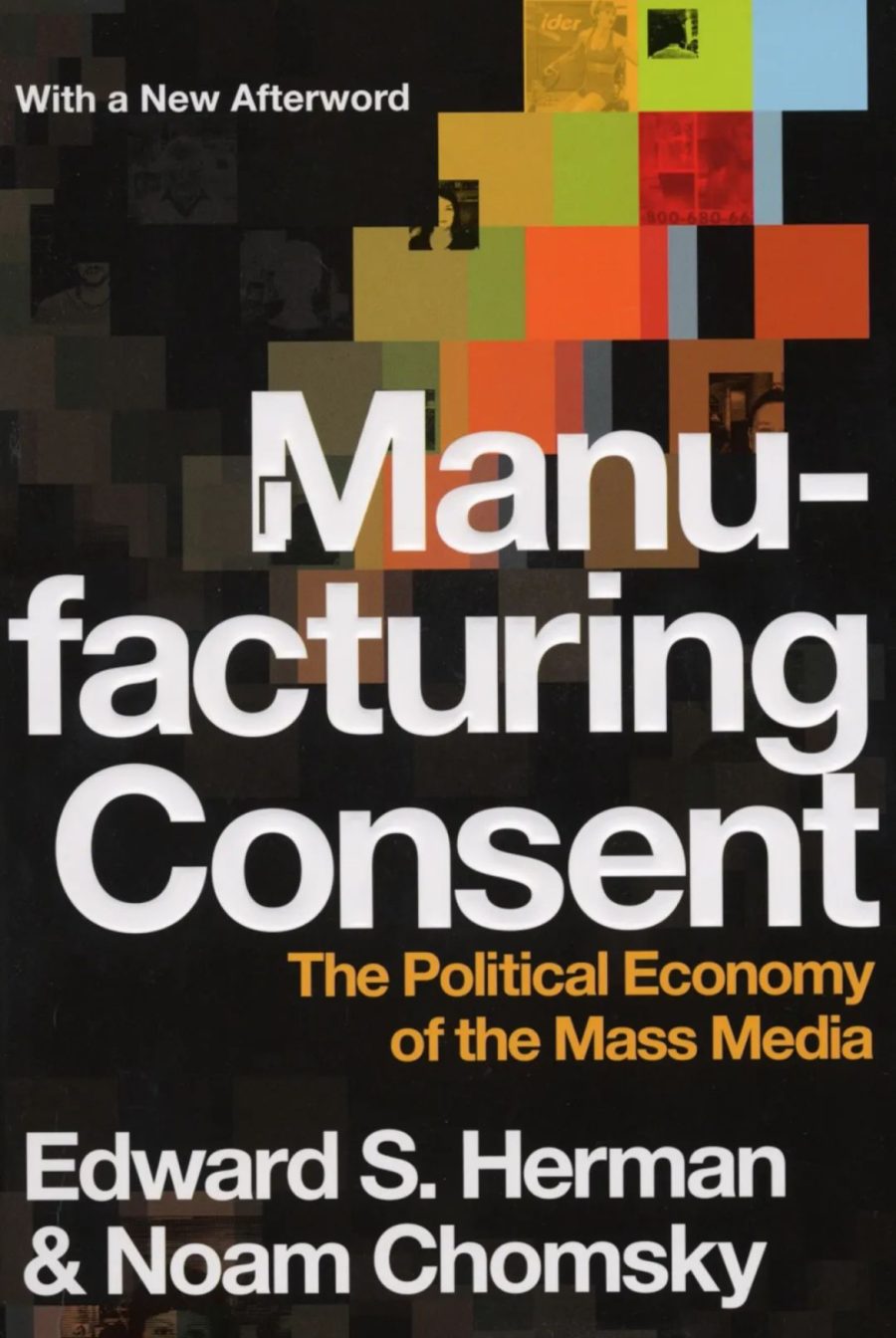
Hi,Haoyu. Your blog does a great job of using the example of JapanÔÇÖs nuclear wastewater discharge to show how different media outlets frame the same issue in unique ways. ItÔÇÖs a perfect illustration of how selective reporting and framing can influence public perception.
The discussion of Manufacturing Consent and its five filters, like the role of advertising and reliance on powerful information sources, ties in seamlessly with these examples. ItÔÇÖs good to see how media narratives are shaped and how they reflect underlying economic and political interests.
Overall, it’s a very controversial topic and worth to talk about.